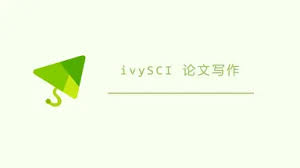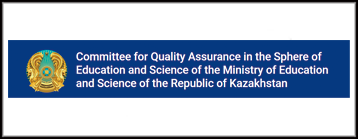Incorporation of neodymium, holmium, erbium, and samarium (oxides) in zinc-borotellurite glass: Physical and optical comparative analysis
DOI:
https://doi.org/10.31643/2025/6445.03Keywords:
tellurite glass, rare-earth oxides, optical propertiesAbstract
Investigating the effect of different types of rare-earth oxides on zinc borotellurite glass is important to determine the potential application in optical devices. The addition of rare-earth oxides in zinc borotellurite glass is well-known to enhance the optical properties due to the effects of 4f-4f transitions. In this work, we aim to compare the effect of different rare-earth oxides on zinc borotellurite glass denoted as ZBTNd, ZBTHo, ZBTEr and ZBTSm. The glass samples were successfully fabricated via the melt-quenched technique. The physical investigation of the glasses has been done by measuring the density and molar volume. It was found that ZBTNd glass has the lowest density than the other glasses due to the small atomic radius in neodymium oxide. High-density value for ZBTHo glass shows potential to be used as radiation shielding properties. The high value of molar volume for ZBTNd glass is advantageous for fiber optics as ZBTNd glass has good performance in elasticity. It was found that ZBTEr has a lower refractive index than the other glasses due to low dispersion characteristics. However, ZBTEr glass has good performance to be used in optical communication applications. It was found that the optical absorption shifts to a longer wavelength beginning from ZBTEr > ZBTHo > ZBTNd > ZBTSm. The optical band gap energy for ZBTEr glass is higher than the other glasses due to the Coulomb repulsion energy for erbium which is greater than neodymium and samarium and slightly higher than holmium. The pattern of electronic polarizability for all glasses was found as follows ZBTSm>ZBTNd>ZBTEr>ZBTHo. The optical basicity for ZBTEr was found highest which indicates a higher acidity, meanwhile, the ZBTNd glass has the lowest value which corresponds to a higher basicity.
Downloads
References
Abdel Wahab EA, Koubisy MSI, Sayyed MI, Mahmoud KA, Zatsepin AF, Sayed A Makhlouf, Shaaban KhS. Novel borosilicate glass system: Na2B4O7-SiO2-MnO2: Synthesis, average electronics polarizability, optical basicity, and gamma-ray shielding features, Journal of Non-Crystalline Solids. 2020.
Hong Luo, Jianwu Yu, Haiqin Lou, Kaifeng Huang, Junzhi Hu, Binchao Xu, Thermal/tribological effects of superimposed ultrasonic vibration on viscoelastic responses and mold-filling capacity of optical glass: A comparative study, Ultrasonics. 2020; 108.
Nazrin SN, Halimah MK, Muhammad FD, Latif AA, Iskandar SM, Asyikin AS. Experimental and theoretical models of elastic properties of erbium-doped zinc tellurite glass system for potential fiber optic application, Materials Chemistry and Physics. 2021; 259.
Azlina Y, Azlan MN, Suriani AB, Halimah MK, Umar SA. Optical properties of graphene oxide-coated tellurite glass for potential fiber optics, Journal of Non-Crystalline Solids. 2020; 536.
El Yuwei Wu, Chunhui Niu, Lei Wang, Mingqing Yang, Shiyu Zhang. Structural, luminescence, and temperature sensing properties of the Er3+-doped germanate-tellurite glass by excitation at different wavelengths, Journal of Luminescence. 2024; 266.
Azlina Y, Azlan MN, Halimah MK, Umar SA, El-Mallawany R, Najmi G. Optical performance of neodymium nanoparticles doped tellurite glasses, Physica B: Condensed Matter. 2020; 577.
Azlan MN, Halimah MK, Sidek HAA. Linear and nonlinear optical properties of erbium doped zinc borotellurite glass system, Journal of Luminescence. 2017; 181:400-406.
Vani P, Vinitha G, Praveena R, Durairaj M, Sabari Girisun TC, Manikandan N. Influence of holmium ions on the structural and optical properties of barium tellurite glasses, Optical Materials. 2023; 136.
Hemlata Kumari, Ghizal F Ansari, Mahajan SK, Sk Rezaul K, Sukhdev Bairagi. Study of visible upconversion luminescence in Er3+ and Er3+/Yb3+ doped tungsten tellurite glasses, Materials Today: Proceedings. 2023.
Yusof NN, Ghoshal SK, Jupri SA, Azlan MN. Synergistic effects of Nd3+ and Ag nanoparticles doping on spectroscopic attributes of phosphate glass, Optical Materials. 2020; 110.
Umar SA, & Ibrahim GG. Theoretical Elastic Moduli of TeO2 – B2O3 – SiO2 Glasses. EDUCATUM Journal of Science, Mathematics and Technology. 2020; 7(2):18-30.
Tekin HO, Kassab LRP, Shams AM Issa, Camila Dias da Silva Bordon, M.S. Al-Buriahi, Filipe de Oliviera Pereira Delboni, Gokhan Kilic, Evellyn Santos Magalhaes, Structural and physical characterization study on synthesized tellurite (TeO2) and germanate (GeO2) glass shields using XRD, Raman spectroscopy, FLUKA and PHITS, Optical Materials. 2020; 110:110533.
Kawa M Kaky, Sayyed MI, Mhareb MHA, Alyaa H Abdalsalam, Mahmoud KA, Baki SO, Mahdi MA. Physical, structural, optical and gamma radiation attenuation properties of germanate-tellurite glasses for shielding applications, Journal of Non-Crystalline Solids. 2020; 545.
Devaraja C, Jagadeesha Gowda GV, Keshavamurthy K, Eraiah B, Devarajulu G, Jagannath G. Physical, structural and photo luminescence properties of lead boro-tellurite glasses doped with Eu3+ ions, Vacuum. 2020; 177:109426.
Murali Krishna V, Mahamuda Sk, Rekha Rani P, Swapna K, Venkateswarlu M, Rao AS. Effect of samarium ions concentration on physical, optical and photoluminescence properties of Oxy-Fluoro Boro Tellurite glasses, Optical Materials. 2020; 109:110368.
Ravi Prakash M, Neelima G, Venkata Krishnaiah Kummara, Ravi N, Dwaraka Viswanath CS, Subba Rao T, Mahaboob Jilani S. Holmium doped bismuth-germanate glasses for green lighting applications: A spectroscopic study, Optical Materials. 2019; 94:436-443.
Katarzyna Pach-Zawada, Magdalena Leśniak, Katarzyna Filipecka, Edmund Golis, El Sayed Yousef, Piotr Pawlik, Dominik Dorosz, Maciej Sitarz, Jacek Filipecki, Structural studies of tellurite glasses from the 70TeO2-5XO-10P2O5–10ZnO–5PbF2 system (X = Ba, W, Sr, Cd) doped with erbium ions, Journal of Molecular Structure. 2021; 1224:128787.
Naseer KA, Marimuthu K, Al-Buriahi MS, Amani Alalawi, Tekin HO. Influence of Bi2O3 concentration on barium-telluro-borate glasses: Physical, structural and radiation-shielding properties, Ceramics International. 2021; 47(1):329-340.
Halimah MK, Umar SA, Chan KT, Latif AA, Azlan MN, Abubakar AI, Hamza AM. Study of rice husk silicate effects on the elastic, physical and structural properties of borotellurite glasses, Materials Chemistry and Physics. 2019; 238:121891.
Azlan MN, Halimah MK. Role of Nd3+ nanoparticles on enhanced optical efficiency in borotellurite glass for optical fiber, Results in Physics. 2018; 11:58-64.
Yusof NN, Ghoshal SK, Azlan MN. Optical properties of titania nanoparticles embedded Er3+-doped tellurite glass: Judd-Ofelt analysis, Journal of Alloys and Compounds. 2017; 724:1083-1092.
Halimah MK, Faznny MF, Azlan MN, Sidek HAA. Optical basicity and electronic polarizability of zinc borotellurite glass doped La3+ ions, Results in Physics. 2017; 7:581-589.
Mariselvam K, Juncheng Liu. A novel Er3+ ions doped zirconium magnesium borate glass with very high quantum efficiency for green laser and optical amplifier applications, Solid State Sciences. 2021; 111.
Swetha BN, Devarajulu G, Keshavamurthy K, Jagannath G, Deepa HR. Enhanced 1.53 µm emission of Er3+ in nano-Ag embedded sodium-boro-lanthanate glasses, Journal of Alloys and Compounds. 2021; 856:158212.
Madhu A, Srinatha N. Structural and spectroscopic studies on the concentration dependent erbium doped lithium bismuth boro tellurite glasses for optical fiber applications, Infrared Physics & Technology. 2020; 107:103300.
Alaska Subedi, First-principles study of the electronic structure and magnetism of CaIrO3, Phys. 2012; 85(2):020408.
Pieter Dorenbos, Lanthanide 4f-electron binding energies and the nephelauxetic effect in wide band gap compounds, Journal of Luminescence. 2013; 136:122-129.
Fajans K, & Kreidl NJ. Stability of lead glasses and polarization of ions, Journal of the American Ceramic Society. 1948; 31(4):105-114.
Dimitrov V, and Sakka S. Electronic Oxide Polarizability and Optical Basicity of Simple Oxide. Journal of Applied Physics. 1996; 79:1736-1740.
Duffy JA, Ingram MD. Establishment of an optical scale for Lewis basicity in inorganic oxyacids, molten salts, and glasses, J. Am. Chem. Soc. 1971; 93:6448.
Dimitrov V, Komatsu T. An interpretation of optical properties of oxides and oxides glasses in term of electronic polarizability and average single bond strength, J. Univ. Chem. Technol. Metal. 2010; 45: 219-225.
Downloads
Published
How to Cite
Issue
Section
License
Copyright (c) 2024 Azlina, Y., Azlan, M., Suriani, A., Shaari, H., Al-Hada, N. M., Umar, S., Kenzhaliyev, B., Zaid, M., Hisam, R., Iskandar, S., Yusof, N., & Yusoff, A. H.

This work is licensed under a Creative Commons Attribution-NonCommercial-NoDerivatives 3.0 Unported License.


























